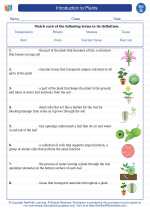Introduction to Plants -> decomposers
Decomposers
Decomposers are organisms that break down dead or decaying organisms, and in doing so, they carry out the natural process of decomposition. This process is essential for recycling nutrients back into the ecosystem, making them available for use by other living organisms.
Types of Decomposers
Role of Decomposers
Decomposers play a crucial role in the environment by breaking down organic matter and returning essential nutrients to the soil. This process helps to maintain the balance of nutrients in the ecosystem, allowing plants to grow and supporting the food web.
Decomposition Process
When a plant or animal dies, decomposers begin the process of breaking down the organic matter. Bacteria and fungi release enzymes that break down complex organic molecules into simpler substances, which are then absorbed by the decomposers as nutrients.
Importance of Decomposers
Decomposers are essential for maintaining the health of ecosystems. Without them, dead organic matter would accumulate, and nutrients would become locked up and unavailable for use by other organisms. The presence of decomposers ensures that the cycle of life continues, with nutrients being recycled and made available for the next generation of plants and animals.
Study Guide Questions
- What are decomposers?
- Identify four types of decomposers.
- Explain the role of decomposers in the environment.
- Describe the process of decomposition.
- Why are decomposers important for ecosystems?
◂Science Worksheets and Study Guides Seventh Grade. Introduction to Plants

 Worksheet/Answer key
Worksheet/Answer key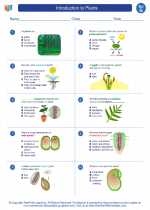
 Worksheet/Answer key
Worksheet/Answer key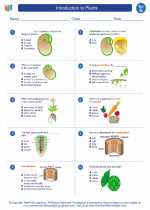
 Worksheet/Answer key
Worksheet/Answer key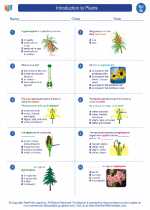
 Worksheet/Answer key
Worksheet/Answer key
 Vocabulary/Answer key
Vocabulary/Answer key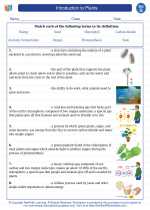
 Vocabulary/Answer key
Vocabulary/Answer key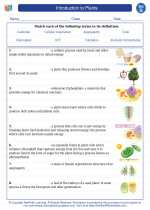
 Vocabulary/Answer key
Vocabulary/Answer key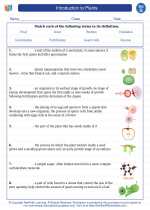
 Vocabulary/Answer key
Vocabulary/Answer key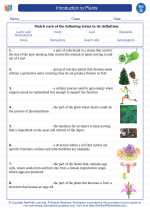
 Vocabulary/Answer key
Vocabulary/Answer key